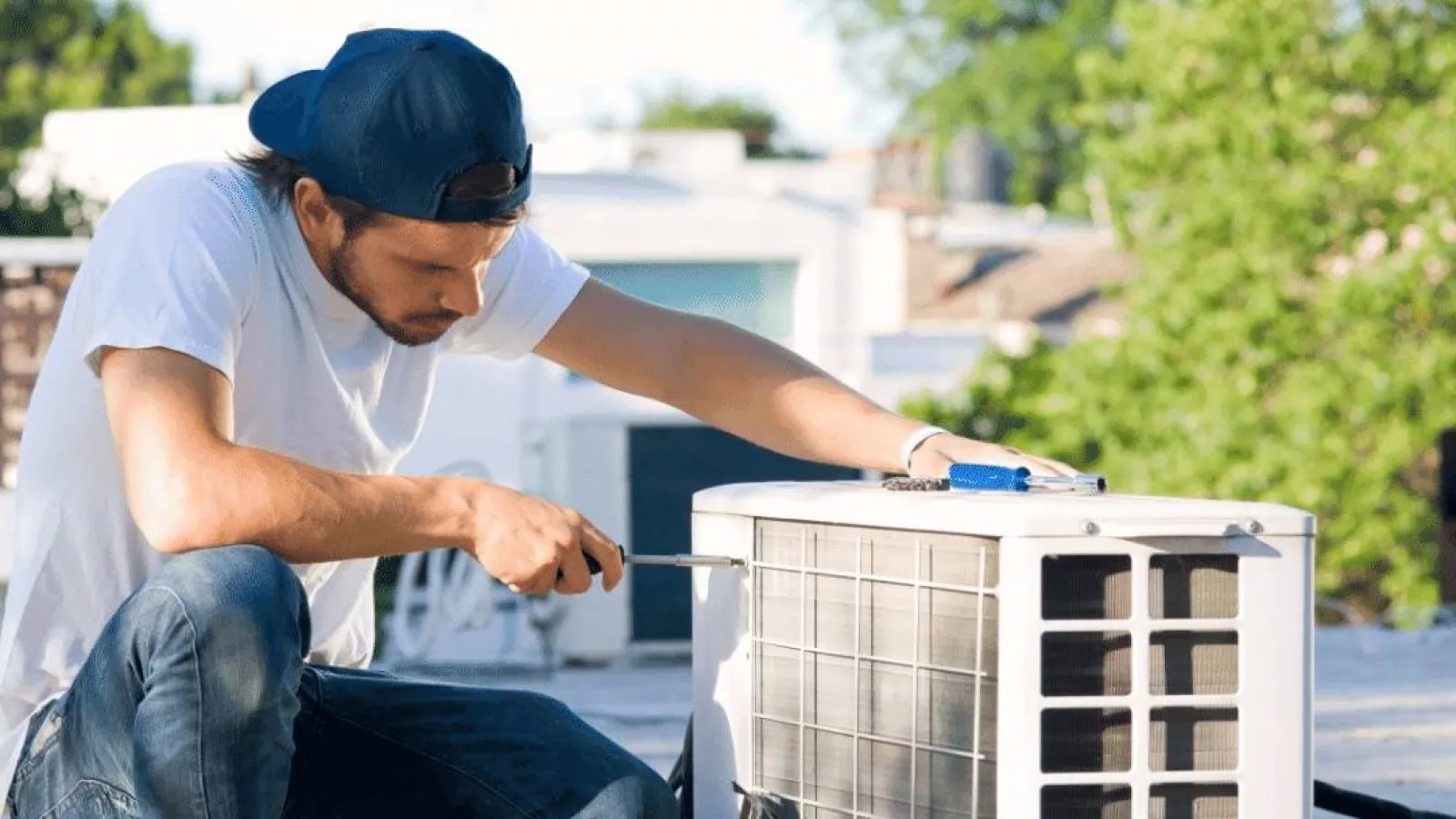Are you considering upgrading your heating and cooling system? Maybe you are building a brand new home and are looking for a more efficient way to stay comfortable all year long. If this sounds like you, then you’ll definitely want to keep reading to find out what a heat pump is and how it can improve your home heating and cooling. To fully understand how a heat pump can save you money and installation hassle, we first need to ask — how does a heat pump work?
What is a Heat Pump?
Find out how your heat pump differs from other heating mechanisms like radiators or furnaces

The first thing you should know when searching for the answer to “how does a heat pump work?” is that heat pumps do not actually produce heat. Though this may sound completely counterintuitive to how traditional heating methods work, it is actually how a heat pump helps your whole home function more efficiently.
A heat pump is a heating and cooling system that pulls warmth from the energy in the outside air, even at very low temperatures, and pumps the heat into your home. In essence, your heater is simply moving cold air from the inside of your home to the outside and moving warm air from the outside to the inside. This exchange of heat and cool takes place in the outdoor and indoor units that make up your heat pump.
There are a few different types of heat pumps, but the big two types you will most likely encounter are ducted heat pumps and ductless heat pumps. The difference between these two mechanisms is their use of air ducts. While a ducted system blows air through air ducts just like a furnace, a ductless heat pump receives heat energy via the refrigerant line which is only about 3 inches in diameter. The refrigerant line is much easier to install in your home than bulky air ducts, making ductless heating and cooling the preferable option for most new home builds.
How Does a Heat Pump Work?
Find out how the different components of your heat pump work together to provide efficient home heating

Now we can really get into the details and answer the question, “how does a heat pump work?” Let’s get started with the outdoor unit — the outdoor unit contains a fan and coil. Depending on the time of year your outdoor unit will either act as an evaporator or condenser. When your heat pump is in heating mode, your outdoor unit will blow air over the evaporator coil which saps any heat energy from the outside air.
The energy then travels along the refrigerant line to the indoor, or air handler, unit. Once the heat energy reaches the indoor unit, the indoor unit acts as a condenser. After that, the heated air is then blown into your living spaces. Though the feeling produced is similar to a furnace, your heat pump is merely exchanging hot and cold air rather than producing it via a heat source.
How Does a Heat Pump Work in Cooling Mode?
Your heat pump can both heat and cool your home and keep you comfortable all year long

So far we’ve only answered part of the question — “how does a heat pump work?” Now it’s time to talk about how a heat pump works when it is set to cooling mode. When you set your heat pump cool instead of heating your home, the process just described reverses. That is to say, your indoor unit becomes an evaporator and your outdoor unit becomes a condenser. When this happens, the flow of the refrigerant also reverses. So, when the weather gets warm and you are in need of cooling to keep your home, you can reverse your heat pump operation so warm air is pumped outside and cool air is pumped in.
What Makes a Heat Pump Energy Efficient?
Learn how heat pumps take advantage of a very simple physical property

Though heat pumps may seem complicated, there is actually an extremely simple physical principle behind these devices. Hot air will naturally want to move to places with cooler air. This is why when you open a window in the winter all of the warm air begins to rush into the outdoors. A heat pump relies on this exact same principle by putting warm air in contact with cooler environments so that the heat can travel as intended. This is the main reason that heat pumps can save you money on your energy bills — they don’t require nearly as much energy as a furnace or a radiator.
If you are still wondering, “how does a heat pump work?” Restano Heating, Cooling, and Plumbing can answer any follow up questions you might have. The Restano team are experts in heat pump installation and maintenance. We only complete repair work using experienced, licensed technicians who use professional equipment that meets our standards. So, give us a call today and let us make sure your heating system is running properly.

